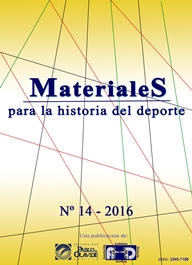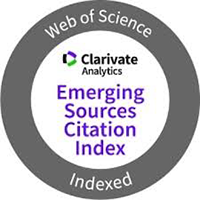The restructuring plans and the spanish football clubs conversion into PLCs (1982-1992)
Keywords:
football, Spain, PLC, commodification, sport law.Abstract
Among the Sport’s commodification process that has taken place in the last decades, Spanish football suffered a critical transformation in the eighties decade and the first nineties, along with other European countries: footballers became workers, the Spanish professional league was created (LFP) and television income increased exponentially thanks to new private and public televisions. Probably the most important change was the transformation of football clubs into PLC trough the Spanish 1990 Sport Law. This change was the result of a process of confrontation and negotiation between the different players, such as clubs, Federation, League and the government. The clubs, which were close to bankruptcy due to their accumulated debts, first succeeded in receiving more money from the public football lottery, the Quinielas, in return of increased economic control. This first restructuring plan failed, forcing the government to implement a mandatory transformation into PLC for the clubs in exchange of more money. The clubs tried to resist this process, but were too dependent on future public money. This critical moment in Spanish Sport history belongs to the Spanish Sport system and must therefore be explained.
Downloads
References
Alcoba López, Antonio. De la ley del fútbol a Barcelona 92. Edited by Esteban Sanz. Madrid, 1992.
Andrews, D.L. & Ritzer, G. “The Grobal in the Sporting Glocal”. Global Networks, 2007.
Bahamonde Magro, Angel. El Real Madrid En La Historia de España. [Madrid]: Taurus, 2002.
Bonaut Iriarte, Joseba. “El eterno problema del Fútbol televisado en España: Una Perspectiva histórica de la lucha por los derechos de retransmisión de la Liga de Fútbol Profesional (LFP)”. Comunicacion y Sociedad 23, no. 2 (2010): 71–96.
Cazorla Prieto, Luis. Las Sociedades Anónimas Deportivas. Madrid: Ediciones ciencias sociales, 1990.
García Candau, Julián. El futbol, sin ley. Madrid: Penthalon Ediciones, 1980.
Giulianotti, Richard. Football. Polity Press, 2000.
Gómez, R. Terol. “Las Ligas Profesionales”. Aranzadi, 1998.
Jarvier, G. “Sport, Culture and Society: An Introduction”, 2013.
Ley Del Deporte. Madrid: Civitas, 1991.
Maguire, Joseph. “Sport, Identity Politics, and Globalization: Diminishing Contrasts and Increasing Varieties”. Sociology of Sport Journal 11, no. 4 (1994): 398–427.
Markovits, A.S. & Hare, G. “Football in France: A Cultural History”, 2005.
Martín Quetglas, Gregorio. Lo Que El Fútbol Se Llevó: Hacienda y el Fútbol: Una Asignatura Pendiente. Valencia: Universitat de València, 2004.
Meier, HE. “Solidarity and Market Power in German Soccer: The Regulation of Collective Selling”. Football Studies, 2003.
Rowe, D. “Sport, Culture & Media: The Unruly Trinity”, 2003.
Sandvoss, C. “A Game of Two Halves”. Football, Television and Globalization. London, 2003.
Simón, Juan. España ’82 : La Historia de Nuestro Mundial. Madrid: T & B, 2012.
Smart, B. “The Sport Star: Modern Sport and the Cultural Economy of Sporting Celebrity,” 2005.
Vilaseca, Josep Lluis. Que Consti En Acta: Memóries. Barcelona: Raval Edicions SLU, Proa, 2014.
Whannel, G. “Fields in Vision: Television Sport and Cultural Transformation”, 1992.
Williams, John M. “The Local and the Global in English Soccer and the Rise of Satellite Television”, 1994, 376–97.
Downloads
Published
Issue
Section
License
Authors who submit to this journal agree to the following terms:
- Author(s) keep copyright and guarantee to the journal the right to be the first publication of the work as licensed under Creative Commons Attribution-Noncommercial-ShareAlike 4.0 International as initial publication in this journal.
- Author(s) can establish additional agreements for non-exclusive distribution of the version of the work published in the journal (for example, to an institutional archives or to publish it in a book), with an acknowledgment of its initial publication in this journal.
- It is allowed and authors are encouraged to disseminate their work electronically (e.g, in institutional open archives or on their own website) before and during the submission process, as it can lead to productive exchanges, as well as a citation earlier and more of published work (See the Effect of Open Access).










